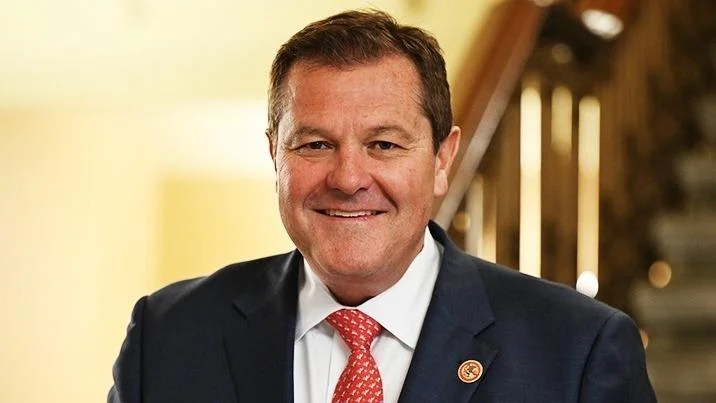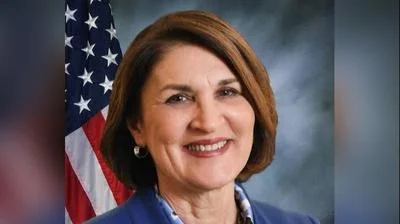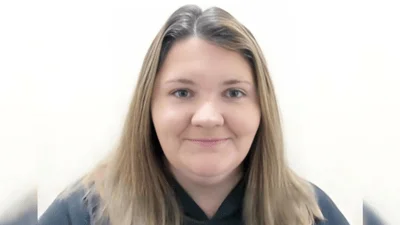Michael J. Coffey Jr., Illinois State Representative for 95th District | www.facebook.com
Michael J. Coffey Jr., Illinois State Representative for 95th District | www.facebook.com
Governor JB Pritzker addressed national audiences over the weekend in interviews on Face the Nation and Meet the Press, where his comments on public safety, immigration, and state policy have drawn scrutiny from political opponents and law enforcement advocates.
When questioned about crime in Chicago, Governor Pritzker stated that “Chicago is fine.” This comment came shortly after a Labor Day weekend during which more than 50 people were shot in the city, with eight fatalities. The incident is part of an ongoing pattern of violence affecting communities throughout Chicago.
State Representative Mike Coffey commented on the situation: “The safety of Illinois residents must be a priority for all leaders and laws need to be enforced to keep communities safe across the state,” said Coffey. “Chicago needs help, and law enforcement needs support as they grapple with continued crime that is making residents not feel safe in their communities.”
Coffey, a Republican, was elected to the Illinois State House in 2023 to represent the state's 95th House District, replacing previous state representative Tim Butler.
Governor Pritzker also discussed cooperation between federal agencies like ICE and local law enforcement. However, his administration’s record has faced criticism due to the Illinois Way Forward Act signed in 2021. This law restricts local law enforcement from working with ICE by limiting coordination, information sharing, and transfers of individuals into federal custody.
On immigration policy, a recent complaint filed by the U.S. Department of Justice challenges Illinois laws that provide in-state tuition and scholarships for undocumented immigrants. The complaint argues these laws violate federal statutes by offering benefits to non-citizens not available to U.S. citizens from other states. Attorney General Pamela Bondi stated: “Under federal law, schools cannot provide benefits to illegal aliens that they do not provide to U.S. citizens.” U.S. Attorney Steven D. Weinhoeft added: “Illinois has an apparent desire to win a ‘race to the bottom’ as the country’s leading sanctuary state. Its misguided approach mandating in-state tuition, scholarships, and financial aid to illegal aliens plainly violates federal law... Illinois citizens deserve better.”
These legal actions follow executive orders aimed at ensuring taxpayer-funded benefits are not extended to those who are not legally qualified.
In economic matters, Republican legislators have introduced reforms targeting delays within the Illinois Department of Financial and Professional Regulation (IDFPR), which oversees licensing for more than 1.2 million professionals across over 100 occupations statewide. The legislative package seeks improvements such as online payments, reduced costs, reciprocity agreements with other states, and expedited licensing for professions facing shortages—especially healthcare roles.
House Republicans have highlighted productivity concerns related to remote work at IDFPR following pandemic-related changes and called for further adoption of technology systems to streamline applications and renewals.
Representative Coffey’s office is providing assistance for constituents navigating professional licensure applications through IDFPR.
A delayed release of audited financial reports has raised additional concerns about transparency in state spending oversight. The Illinois Annual Comprehensive Financial Report for Fiscal Year 2023 was released more than two years after the period ended—a record delay among U.S. states according to analysis by government finance organizations—and far outside recommended guidelines for timely reporting.
For Fiscal Year 2024 spending (ending June 30, 2024), only unaudited interim figures are currently available from the Comptroller’s office.
Recent data from the Commission on Government Forecasting and Accountability (CGFA) indicates slow growth in tax revenues for August 2025 compared with previous years; personal income tax receipts rose by 3.7%, while corporate income tax payments and cigarette tax revenues remained flat or declined. CGFA’s report notes long-term declines in cigarette use have been offset somewhat by increased consumption of alternative nicotine products but overall cigarette taxes still significantly outpace those from other tobacco products.
A new tax increase on non-cigarette tobacco products was enacted earlier this year under Public Act 104-6 as part of efforts by majority Democrats in Springfield; this measure is expected both to close revenue gaps between different product categories and raise additional funds through higher consumer taxes.
To learn more about professional licensing through IDFPR visit idfpr.illinois.gov.






 Alerts Sign-up
Alerts Sign-up